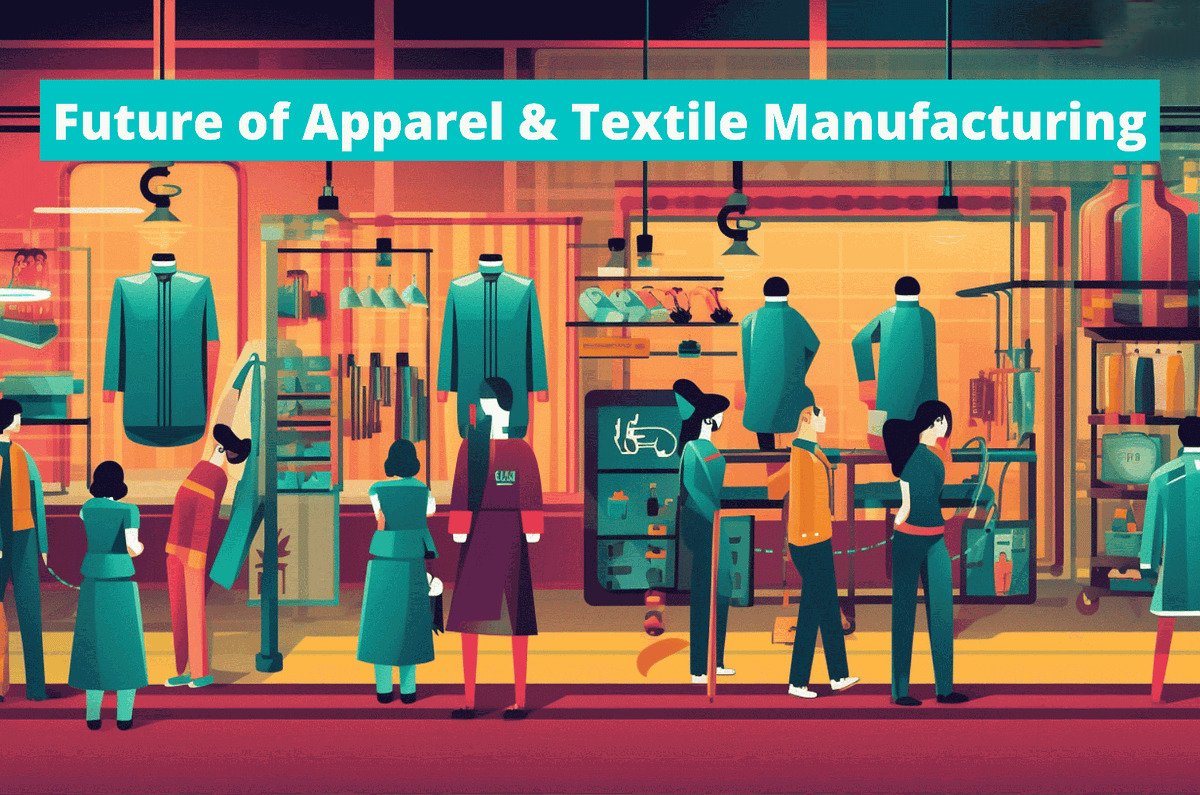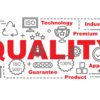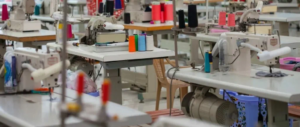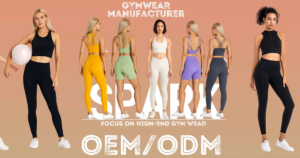Apparel Manufacturing Trends 2025
The global apparel industry is entering a new era—one where technology, sustainability, and customization define success. What worked five years ago in fashion manufacturing no longer guarantees growth. Rising production costs, shifting consumer expectations, and environmental regulations have forced brands to evolve rapidly.
At Revoke Industries, we understand how crucial innovation has become for fashion labels seeking reliable and future-ready apparel manufacturers. Let’s explore the top apparel manufacturing trends of 2025 and how brands can adapt to stay competitive.
1. AI-Driven Automation & Smart Factories
Artificial intelligence is no longer a concept of the future—it’s reshaping how apparel is produced today.
From robotic sewing systems to AI-based fabric inspection, smart factories are boosting efficiency and precision while minimizing human error.
According to McKinsey, AI automation can increase production efficiency by up to 40%, helping brands cut costs and reduce waste. At Revoke Industries, we integrate smart production tools that enhance workflow and shorten lead times without compromising quality.
2. Sustainable and Circular Fashion Manufacturing
Sustainability is the most powerful force driving apparel manufacturing trends in 2025.
Brands are shifting toward eco-friendly fabrics, closed-loop production, and zero-waste design models. Companies like Patagonia and Levi’s are already setting the standard with recycled materials and water-saving innovations.
Revoke Industries supports ethical production practices, using responsibly sourced materials and low-impact dyes to help brands build trust with conscious consumers.
3. Small-Batch and On-Demand Manufacturing
Fashion consumers no longer want mass-produced designs—they prefer custom, limited-run collections that reflect individuality.
Small-batch manufacturing reduces overproduction, minimizes storage costs, and enables brands to respond quickly to new trends.
Through our flexible production system, Revoke Industries empowers labels to produce on-demand collections with precise customization, shorter lead times, and premium quality assurance.
4. 3D Printing and Digital Textile Innovation
3D printing is revolutionizing product development and sampling. This digital innovation allows designers to experiment, prototype, and adjust styles in real time—without material waste.
Digital textile printing also uses up to 90% less water than traditional dyeing, making it both cost-effective and sustainable.
At Revoke Industries, we work with advanced textile printing technology to support fast-moving brands that value creativity, speed, and sustainability.
5. Ethical Sourcing and Supply Chain Transparency
Consumers are more informed than ever, and transparency has become a major purchasing factor.
Brands now demand traceable supply chains to ensure ethical labor and environmental responsibility.
Blockchain and digital tracking tools are helping verify raw material origins, ensuring every product aligns with fair trade practices.
Revoke Industries takes pride in its transparent partnerships—ensuring every garment is produced responsibly, from sourcing to shipping.
6. Localized and Nearshore Production
After years of global supply chain disruptions, many brands are moving closer to their markets.
Nearshore manufacturing reduces shipping time, lowers costs, and supports faster replenishment cycles.
With strategically located facilities, Revoke Industries provides efficient, region-based apparel production for brands looking to shorten their supply chains without sacrificing quality.
7. Smart Textiles and Wearable Technology
The integration of technology in fabrics is opening new possibilities in performance and lifestyle apparel.
From temperature-regulating fabrics to biometric-enabled sportswear, smart textiles are merging innovation with comfort.
As part of our forward-thinking approach, Revoke Industries collaborates with R&D partners to incorporate these intelligent materials into modern collections.
8. Virtual Sampling and AI-Driven Fashion Design
Virtual prototyping tools are replacing traditional sampling, saving both time and resources.
AI-driven design assists brands in forecasting trends, creating accurate size fits, and minimizing fabric waste.
Revoke Industries utilizes digital sampling technologies that allow brands to visualize collections before production begins—cutting down sample rounds and improving speed-to-market.
9. Consumer-Driven Manufacturing
Modern consumers—especially Gen Z—expect more than just fashion. They value authenticity, sustainability, and personalization.
This demand is pushing brands toward on-demand production, influencer collaborations, and limited-edition drops.
Revoke Industries helps brands align with these expectations through adaptive production models that cater to changing trends and smaller, frequent releases.
10. Data-Backed Decision-Making
In 2025, data will be fashion’s most valuable resource. From predicting color trends to optimizing raw material purchases, data analytics will guide every step of production.
Revoke Industries integrates real-time analytics into our supply chain operations, allowing clients to make informed decisions that save costs and boost efficiency.
Conclusion
The future of apparel manufacturing is smart, sustainable, and customer-focused.
Brands that embrace AI, digital production, and eco-conscious manufacturing will not only stay relevant but lead the next era of fashion.
At Revoke Industries, we partner with brands that share this forward-thinking vision—delivering premium quality, transparency, and innovation from concept to completion.
Looking for a reliable apparel manufacturer that understands the future of fashion?
Contact Revoke Industries today to start your next custom clothing project with confidence.
Frequently Asked Questions
Why is small-batch production gaining popularity?
It allows fashion brands to reduce waste, meet personalized customer demand, and stay agile in changing markets.
What technologies are shaping the future of apparel?
AI, 3D printing, smart textiles, and blockchain transparency are transforming how clothes are designed, produced, and sold.
What are the top apparel manufacturing trends in 2025?
AI automation, sustainable production, small-batch manufacturing, and digital textile innovations are driving the apparel industry forward in 2025.
Why choose Revoke Industries as your manufacturing partner?
Revoke Industries combines advanced technology, ethical practices, and flexible production models to help brands grow sustainably and efficiently.
How can brands make apparel manufacturing more sustainable?
By using recycled materials, ethical sourcing, and water-saving dyeing technologies, brands can significantly lower their environmental footprint.








Add comment